 W
WElmer Lee Andersen was an American businessman, philanthropist, and the 30th Governor of Minnesota, serving a single term from January 2, 1961, to March 25, 1963, as a Republican.
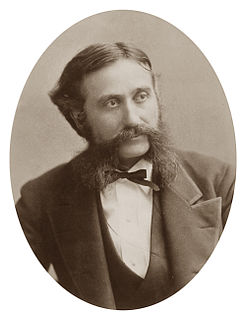 W
WHubert Howe Bancroft was an American historian and ethnologist who wrote, published and collected works concerning the western United States, Texas, California, Alaska, Mexico, Central America and British Columbia.
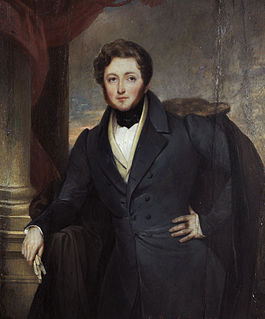 W
WThomas Pennant Barton was an American diplomat and bibliophile who is primarily remembered for the collection of books by and relating to William Shakespeare and English drama that he amassed between 1834 and 1869. Four years after his death, Barton's collection was acquired by the Boston Public Library, where it has remained ever since.
 W
WJames Ford Bell was an American business leader and philanthropist who served as president of General Mills from 1928 to 1934 and chairman from 1934 to 1948.
 W
WCortlandt Field Bishop was an American pioneer aviator, balloonist, autoist, book collector, and traveler.
 W
WCharles L. Blockson is an American historian, author, bibliophile, and collector of books, historical documents, art, and other materials related to the history and culture of African Americans, continental Africans, and the African diaspora throughout the rest of the world. He curated two university collections related to the study of African-American history and culture: the Charles L. Blockson Collection of African-Americana and the African Diaspora at Pennsylvania State University and the Charles L. Blockson Afro-American Collection at Temple University.
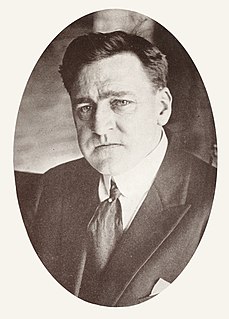 W
WWilliam Andrews Clark Jr. was a Los Angeles-based philanthropist and the youngest surviving son of copper baron and U.S. Senator William Andrews Clark Sr. and his first wife, Katherine.
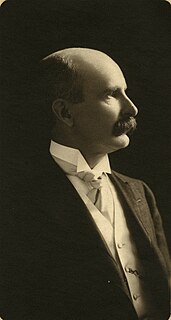 W
WWilliam Lawrence Clements (1861–1934) was an American businessman and collector of historical works; founder, and donor to the William L. Clements Library at the University of Michigan. In addition, Clements donated more than twenty-million-dollars throughout his life to the University, oversaw a successful business career in the manufacturing and banking industry, and served as a regent of the University of Michigan for twenty-four years.
 W
WMariana W. de Coronel was an American collector of Native American and Mexican curios and antiques. These were gathered during the course of many years, the largest and most valuable collection of historical materials of its kind in the United States.
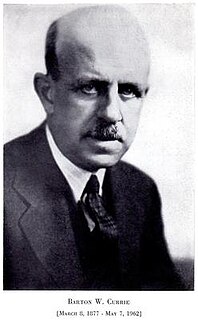 W
WBarton Wood Currie was an American journalist, author, and book collector. Writer of hundreds of articles and stories for publications such as New York Evening World, New York Evening Sun, Harper's Weekly and Good Housekeeping in the early part of the 20th century, Currie went on to become the editor of Country Gentlemen, Ladies Home Journal, and World's Work. He also authored several books. Currie acquired an important collection of material related to Joseph Conrad when that author was out of favour in the 1920s.
 W
WDan Daniel, born Daniel Margowitz, was an American sportswriter whose contributions over a long period led him to be called the Dean of American Baseball Writers.
 W
WJoseph William Drexel was a banker, philanthropist, and book collector.
 W
WLeon Feraru was a Romanian and American poet, literary historian and translator. Cultivating proletarian literature while frequenting the Symbolist movement, he displayed both his origins in the Romanian Jewish underclass and his appreciation for the wider Romanian culture. He popularized the latter with his work in America, having left in 1913 to escape antisemitic pressures. A translator, publicist, and public lecturer, he was involved with the Romanian press of New York City, and eventually as a Romance studies academic at Columbia and Long Island. Feraru's poetry, collected in two volumes, mixes Romanian patriotism, traditionalist references, and modern industrial aesthetics.
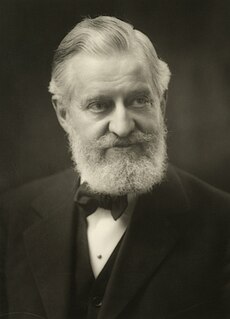 W
WHenry Clay Folger Jr. was president and later chairman of Standard Oil of New York, a collector of Shakespeareana, and founder of the Folger Shakespeare Library.
 W
WWilliam Parker Halliday was an American steamboat captain, banker, printer, hotel owner, vast landowner and businessman. Halliday began his professional career working on steamboats on the Mississippi and Ohio rivers and eventually became a captain of a steamboat based out of Louisville, Kentucky. A pioneer in the river and railroad transportation businesses, Halliday was responsible for the expansion of Cairo, Illinois, following the American Civil War.
 W
WRush Christopher Hawkins was a lawyer, Union colonel in the American Civil War, politician, book collector, and art patron. He was mustered out of the Union Army in 1863 but served in the New York Militia in 1865. In 1866, in consideration of his prior service, he was nominated and confirmed for appointment to the grade of brevet brigadier general of volunteers to rank from March 13, 1865.
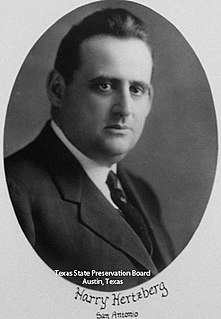 W
WHarry Hertzberg was a prominent San Antonio lawyer, civic leader, and Texas state senator. Together with Tom Scaperlanda he donated the oldest public circus collection in the United States and one of the largest in existence originally to the San Antonio Public Library and now at the Witte Museum. He donated to the San Antonio Public Library almost 15,000 rare books.
 W
WRobert Hoe III was an American businessman and producer of printing press equipment. He succeeded Richard March Hoe as head of R. Hoe & Company, which continued its preeminence among printing-press makers. He was one of the organizers and first president of the Grolier Club, the well-known New York organization for the promotion of bookmaking as an art.
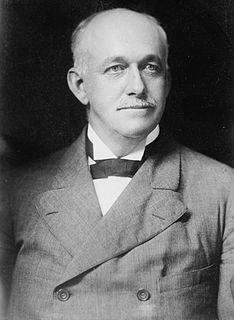 W
WHenry Edwards Huntington was an American railroad magnate and collector of art and rare books. Huntington settled in Los Angeles, where he owned the Pacific Electric Railway as well as substantial real estate interests. In addition to being a businessman and art collector, Huntington was a major booster for Los Angeles in the late 19th and early 20th centuries. In the city of San Marino, California, many places are named after him, including a school, a road and a library.
 W
WThomas Jefferson was an American statesman, diplomat, lawyer, architect, philosopher, and Founding Father who served as the third president of the United States from 1801 to 1809. He had previously served as the second vice president of the United States between 1797 and 1801. The principal author of the Declaration of Independence, Jefferson was a proponent of democracy, republicanism, and individual rights, motivating American colonists to break from the Kingdom of Great Britain and form a new nation; he produced formative documents and decisions at both the state and national levels.
 W
WJerome David Kern was an American composer of musical theatre and popular music. One of the most important American theatre composers of the early 20th century, he wrote more than 700 songs, used in over 100 stage works, including such classics as "Ol' Man River", "Can't Help Lovin' Dat Man", "A Fine Romance", "Smoke Gets in Your Eyes", "The Song Is You", "All the Things You Are", "The Way You Look Tonight" and "Long Ago ". He collaborated with many of the leading librettists and lyricists of his era, including George Grossmith Jr., Guy Bolton, P. G. Wodehouse, Otto Harbach, Oscar Hammerstein II, Dorothy Fields, Johnny Mercer, Ira Gershwin and Yip Harburg.
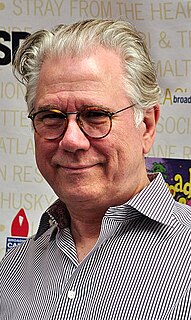 W
WJohn Bernard Larroquette is an American actor. He is best known for his starring roles in the NBC military drama series Baa Baa Black Sheep (1976–1978), the NBC sitcom Night Court (1984–1992), for which he received four consecutive Primetime Emmy Awards for Outstanding Supporting Actor in a Comedy Series, the NBC sitcom The John Larroquette Show (1993–1996), the ABC legal comedy-drama series Boston Legal (2007–2008), and the TNT fantasy adventure series The Librarians (2014–2018).
 W
WL. Brooks Leavitt (1878–1941) was an investment banker and antiquarian book collector who served as an overseer of Bowdoin College, to whose library he donated part of his collection of rare books and manuscripts. Born in Wilton, Maine, to a father who was a stagecoach driver who died when Leavitt was young, Brooks Leavitt was an aesthete turned banker whom Maine's poet laureate later eulogized at his funeral.
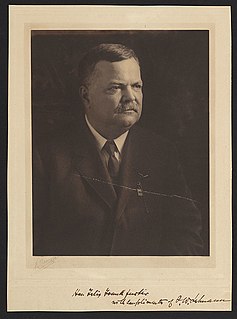 W
WFrederick William Lehmann was a prominent American lawyer, statesman, United States Solicitor General, and rare book collector.
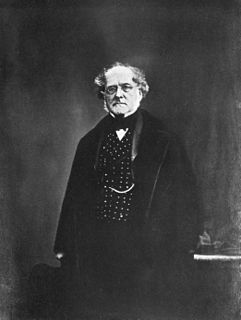 W
WJames Lenox was an American bibliophile and philanthropist. His collection of paintings and books eventually became known as the Lenox Library and in 1895 became part of the New York Public Library.
 W
WStephan Loewentheil is an antiquarian and a rare book and photograph collector. He is the founder and president of the 19th Century Rare Book and Photograph Shop, located in Brooklyn, New York and Baltimore, Maryland. Over a career spanning more than three decades, Loewentheil "has excelled … in unearthing obscure bibliographic details leading to the acquisition of under-appreciated rarities, seminal documents and early historic photographic images." Loewentheil has been described as a "super-collector," whose clients include celebrities, heads of state, American Presidents, and some of the most prominent private collectors and institutional clients of rare books and photographs.
 W
WPeter Marié was an American socialite, philanthropist, and collector of rare books and miniatures from New York City. He commissioned nearly 300 miniature portraits of Gilded Age socialites.
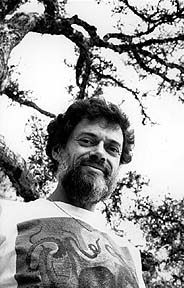 W
WTerence Kemp McKenna was an American ethnobotanist, mystic, psychonaut, lecturer, author, and an advocate for the responsible use of naturally occurring psychedelic plants. He spoke and wrote about a variety of subjects, including psychedelic drugs, plant-based entheogens, shamanism, metaphysics, alchemy, language, philosophy, culture, technology, environmentalism, and the theoretical origins of human consciousness. He was called the "Timothy Leary of the '90s", "one of the leading authorities on the ontological foundations of shamanism", and the "intellectual voice of rave culture".
 W
WJohn Pierpont Morgan was an American financier and banker who dominated corporate finance on Wall Street throughout the Gilded Age. As the head of the banking firm that ultimately became known as J.P. Morgan and Co., he was a driving force behind the wave of industrial consolidation in the United States spanning the late 19th and early 20th centuries.
 W
WAlfred Edward Newton (1864–1940) was an American author, publisher, and avid book collector. He is best known for his book Amenities of Book Collecting (1918) which sold over 25,000 copies. At the time of his death, it was estimated that he had approximately 10,000 books in his collection, focusing on English and American literary works, the major part of which were auctioned by Parke-Bernet Galleries, New York in April, May, and October 1941. Highlights of the sale included the autographed manuscripts of Thomas Hardy's novel Far From the Madding Crowd and Charles Lamb's essay Dream Children. However, the fall in rare book prices steadily through the Great Depression meant that many sold lots brought only a fraction of prices they would have realized at the time of the Jerome Kern sale in 1929. The three volume Newton sale catalogue remains a useful reference for literature collectors.
 W
WGeorge Arthur Plimpton was an American publisher and philanthropist.
 W
WMoses Polock was a Jewish-American publisher and the first bookseller in the United States who dealt exclusively in rare books. At the time of his death, he was the oldest bibliophile in the country.
 W
WDavid Anton Randall was an American book dealer, librarian and bibliographic scholar. He was head of Scribner's rare book department from 1935 to 1956, librarian of the Lilly Library and Professor of Bibliography at Indiana University. Randall was responsible for the sale of two copies of the Gutenberg Bible. As a practitioner of bibliology with a bibliophiliac addiction, a raconteur of history of books, and an avid collector, he developed a keen appreciation for books as physical objects—including the tasks of collecting, cataloging, finding and preserving them.
 W
WRev. Thomas Robbins, D.D. was a Congregational minister, a bibliophile, and an antiquarian. He became the first librarian of the Connecticut Historical Society.
 W
WAbraham Simon Wolf Rosenbach was an American collector, scholar, and seller of rare books and manuscripts. In London, where he frequently attended the auctions at Sotheby's, he was known as "The Terror of the Auction Room." In Paris, he was called “Le Napoléon des Livres”, which translates to “The Napoleon of Books." Many others referred to him as “Dr. R.”, a “Robber Baron” and “the Greatest Bookdealer in the World”.
 W
WLessing Julius Rosenwald was an American businessman, a collector of rare books and art, a chess patron, and a philanthropist.
 W
WDavid Rumsey is an American map collector and the founder of the David Rumsey Map Collection. He is also the president of Cartography Associates.
 W
WFrederick Woodward Skiff (1867–1947), was an author, noted collector, bibliophile, expert on Americana, and founder of the Acorn Club.
 W
WJohn Batterson Stetson Jr. was an American diplomat and businessman. The son of John B. Stetson, he served as the United States Minister to Poland from 1925 to 1929.
 W
WThomas Winthrop Streeter Sr. was a book collector whose collection of Americana was considered one of the most important of its kind.
 W
WCharlemagne Tower, was an American lawyer and businessman active in acquiring land in the Schuylkill Valley in Pennsylvania and serving as an officer for coal and railroad companies. He organized and led a company of Union soldiers from Pottsville in a 3-month enlistment during the American Civil War, when he was commissioned as captain.
 W
WHenry Raup Wagner was an American book collector, bibliographer, cartographer, historian, and business executive. He was the author of over 170 publications, including books and scholarly essays, mainly about the histories of the American frontier and the Spanish exploration and colonization of Mexico. He also assembled tens of thousands of books and manuscripts and formed several collections from them.
 W
WAndrew Dickson White was an American historian and educator, who was the cofounder of Cornell University and served as its first president for nearly two decades. He was known for expanding the scope of college curricula. A politician, he had served as state senator in New York. He was later appointed as a US diplomat to Germany and Russia, among other responsibilities.
 W
WJohn Griswold White was a prominent Cleveland attorney, a chess connoisseur, and a bibliophile.
 W
WRobert J. Wickenheiser served as president of Mount St. Mary's College in Maryland from 1977 to 1993 and of St. Bonaventure University in New York from 1994 to 2003. The Maryland State Senate recognized his "exemplary leadership" of Mount St. Mary's when he retired. The first layman to hold the position at St. Bonaventure, he oversaw the university as it implemented a new core curriculum and expanded its University of Ministries, among other achievements before resigning his position during a scandal over the acceptance of an ineligible basketball player. An avid collector of the works of 17th century poet John Milton for decades, Wickenheiser sold his collection to the University of South Carolina in 2006, helping it establish what was declared at that time to be among the largest collections of Milton in the world.
 W
WHarry Elkins Widener was an American businessman and bibliophile, and a member of the Widener family. His mother built Harvard University's Widener Memorial Library in his memory, after his death on the foundering of the RMS Titanic.